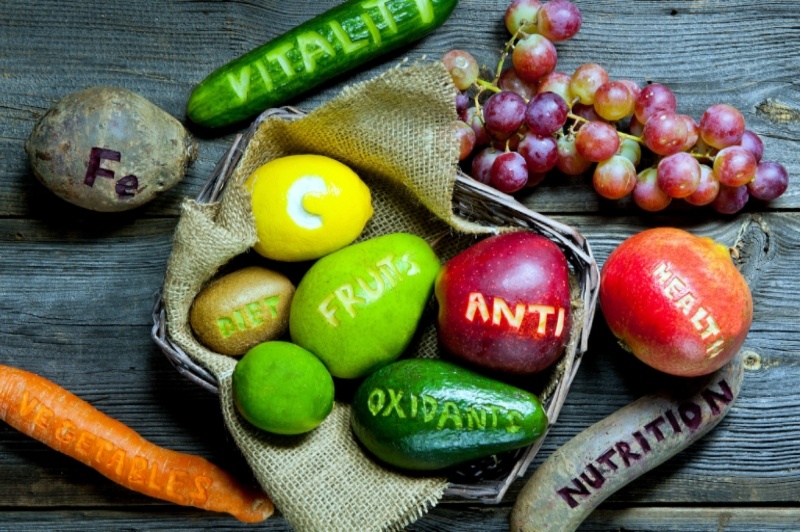By Will Hawkins
Will counting calories help with weight loss?
"
If you're looking to lose weight, there are many different strategies you can try. One of the most popular is counting calories, but is this really effective?
Whether it's due to health concerns, or just aesthetics - we're all more conscious of our weight these days.
But is our obsession with counting calories barking up the wrong tree? Is the process of losing weight really as simple as eating fewer calories than you ‘burn' off?
In this guide, we'll explain why losing weight might not be that simple.
A brief introduction to calories
A calorie is a measure of energy. A single calorie is defined as the energy that's needed to raise the temperature of a gram of water by 1°C. Just to make things a bit more complicated, nutritional values are usually given in kilocalories (1,000 calories) - abbreviated to ‘kcal', which is the energy needed to heat a kilogram of water by 1°C.
Things are labelled this way to present the most meaningful figure, but confusingly, the term ‘calories' is often used in place of ‘kilocalories'. So don't panic - that 50,000-calorie apple you just ate won't make you instantly overweight.
In terms of food and drink, calories are used to define how much energy is in them. When we eat food, we take in this energy, using it to power our bodies. As we digest food, it's mixed with various acids and enzymes in our stomach, which breaks the carbohydrates down into a simple sugar called glucose.
This is absorbed by the stomach and small intestines, which in turn, release it into the bloodstream. From there, it can be used immediately or, if we've consumed more calories than we need, stored as fat for later use.
Recommended calorie intake
To maintain a healthy, stable weight - in the UK, adults are broadly advised to eat:
- About 2,500kcal each day for men
- Around 2,000kcal each day for women
However, this is a ballpark figure. Exactly how much you eat is a bit more difficult to pin down. Factors like your age, sex, height and activity levels can all impact the amount of energy you need.
To stay healthy, you also need to get a good balance of vital nutrients. Fruit and vegetables should make up around a third of what you eat every day, with a good balance of starchy carbohydrates from bread, rice and pasta, as well as protein from beans, pulses, fish, eggs and meat.
You also need a little fat in your diet, but it's best to seek these out from unsaturated sources like oily fish, nuts and avocados, rather than the saturated fat found in cakes and biscuits.
Why it's not that simple
It's important to understand that focusing solely on calories doesn't tell the whole story. Approaching nutrition and weight loss from a ‘calories in, calories out' viewpoint is a big oversimplification.
The human body is a complex machine and uses different techniques to extract the energy from different food sources.
For example, a 2007 study fed two groups of monkeys the same diet in terms of both calories and fat levels, however, for one group, the amount of trans fat was increased. After six years, it was found that the trans fat-fed group had put on more weight, with researchers concluding that the type of food did have an impact on weight.
Food labelling may also fall short when it comes to how we prepare food. It's long been thought that an evolutionary turning point for humans is when we first started cooking our food.
A 2006 study from Harvard University went some way towards confirming this. It put groups of mice on differing diets that included either sweet potatoes or meat, prepared in a variety of different ways.
The results suggested that for both food groups, the mice served cooked food were able to extract more energy.
“You will get fewer calories out of food that is raw than food that is cooked. It's time that we recognise that in our nutritional labeling,†said research team member Prof. Richard Wrangham.
A range of individual differences can also impact how a person's body processes food - from the size of their organs to the community of tiny bacteria that live in their gut and the enzymes that they produce. For instance, people who struggle to process lactose sugars won't be able to extract the same amount of energy from something rich in dairy as those without this issue.
Don't give up hope!
As is often the case, it's not possible to have a set of rules that suit everyone. However, despite all the shortfalls of purely counting calories, it's not all hopeless. Calories are still a good barometer of how much energy you're taking in versus how much you're burning off.
It's a good idea to think quality over quantity though - and the ideal diet for promoting both health and weight loss is one that's relatively low in calories and high in nutrients.
What works for you?
Has calorie counting done the trick for you? Or have you been frustrated by fad diets? Whatever your experience, we always love to hear from you - so be sure to leave us a comment below or get in touch on Facebook or Twitter.
And if you're looking for expert medical advice on nutrition or any other aspect of personal health, Push Doctor lets you speak to an experienced UK GP from the comfort of your own home in minutes.
"

